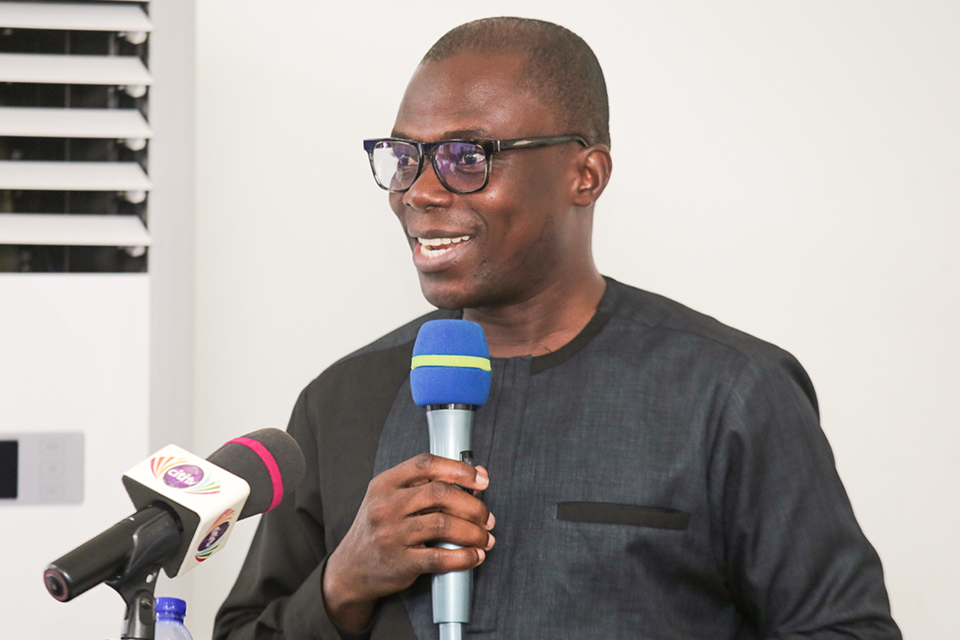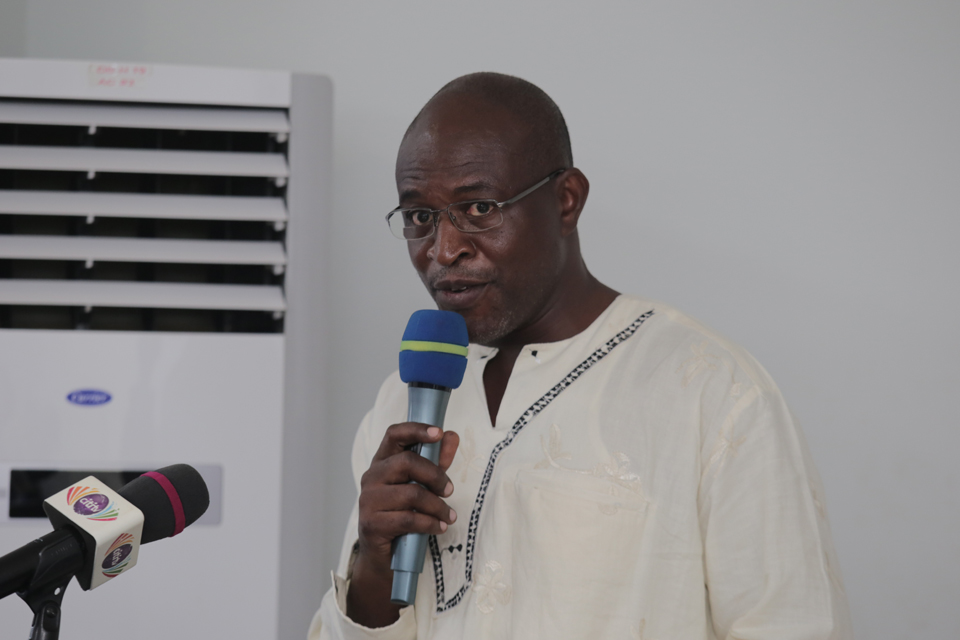MFWA Executive Director Extols UEW Management for Infrastructural Expansion

The Executive Director of the Media Foundation for West Africa (MFWA), Mr. Sulemana Braimah, has commended the management of the University of Education, Winneba (UEW) for its judicious use of the university’s Internally Generated Funds (IGF) to expand infrastructure.
He applauded the UEW Management for the construction of a hospital to improve health delivery for the university community and the Effutu township, more lecture halls to facilitate academic work, hostels to ease accommodation pressure on students, and good roads to facilitate movement within and around campus.
Mr. Braimah spoke at a public lecture organised by the Centre for African Studies (CAS) to commemorate the 2023 African Union Day celebration at Seminar Room III, Student Centre, UEW. He spoke on the topic "Power, Corruption, and Cognitive Capture: The Tragedy of a Rich but Poor Nation".

"We may have made some considerable progress in so many ways, but we have seen retrogression in many areas as well, and I would want to emphasise here that yes, as a nation, we have made progress. When I got to this campus this morning, I was telling my colleague that I am awed by the infrastructural expansion that I am seeing. Many roads have been done; schools have been built; hospitals have been built," he affirmed.
The Executive Director of MFWA indicated that students of UEW are certainly blessed because the best of education happens where teachers are trained.
"It is certainly a great honour and privilege to be invited to speak at this great university that has trained thousands of Ghanaians and continues to be the preeminent institution for teacher education in our country," he asserted.

The Pro-Vice-Chancellor of UEW and Chairman for the event, Prof. Victor Antwi, iterated UEW's resolve to shape the minds of young people to take their rightful place in the world and fashion for themselves a fulfilling life devoid of hunger, diseases, and wars that African nations are currently associated with. African Studies, a compulsory course for all students at the university, aims to curb this misnomer.
"Apart from encouraging our students to learn about their own continent, it is also important that we as academics take the lead in shaping the narratives about our continent. It is only fair that the production of knowledge about Africa is led by Africans. We cannot continue to allow outsiders to tell the world about us—how we live, what we think, and even what we believe. We must leave here today with a renewed commitment towards achieving this goal," he averred.

The Head of the Department for CAS, Dr. David Zuure, called for conscious, purposeful, diligent, and effortful deliberations, decision-making, and committed actions to address the mistakes Africa has made in the past years and the impact those mistakes have caused so far.
"If one looks at global events like COVID-19 and the Russia-Ukraine war, one clearly recognises the need for African integration and unity. That is why we in the CAS of UEW feel happy to provide a golden opportunity for us as Africans to talk about Africa," he said.

The Dean, Faculty of Social Science Education (FSSE), UEW, Prof. Anselm Abotsi, iterated that education is one such powerful tool for the advancement of society. He expressed delight in engaging the minds of participants in decolonising the educational curriculum in Africa.
"I am very confident that the Faculty of Social Science Education through the Centre for African Studies provides us with a fertile platform to address some significant issues concerning African development, power, especially political power, and corruption, which have had a significant influence on the development efforts of many African states," he stated.
The event also featured a roundtable discussion on decolonising the educational curriculum in Africa. The roundtable discussion was moderated by Mr. Ayine Akolgo and the discussants were Dr. Agoswin Musah and Dr. Maxwell Kojo Tsibu.










